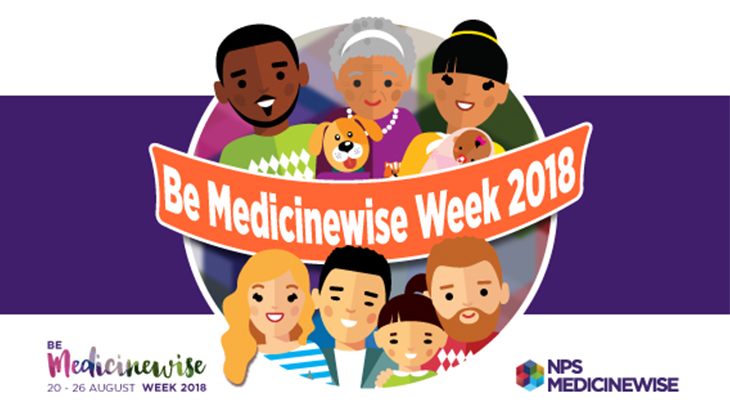
As a first-time parent, you may feel overwhelmed by all the new information you need to know about caring for your child.
One of the topics new parents frequently want to know more about relates to vaccines and immunisations. Don’t worry, it is very common to experience anxiety when it comes to vaccinating your baby. By understanding the importance of vaccines and immunisation, you and your family can help prevent disease, and even keep the community healthy.
To coincide with Be Medicinewise Week 2018 (20-26 August) we are sharing some valuable information from NPS MedicineWise to help you navigate this important responsibility.
What Is Vaccination?
Vaccination is when a virus, or bacteria, is deliberately administered to you (usually by injection but there are also oral vaccines) so that your immune system can prepare to fight a future infection.
Vaccines deliver only tiny amounts of inactivated or weakened viruses or bacteria, or parts of them. This allows your immune system to recognise the organism without you actually experiencing the disease.
What Is The Difference Between Vaccination And Immunisation?
‘Vaccination’ and ‘immunisation’ are often used interchangeably but their meanings are not exactly the same.
Vaccination is when a vaccine is administered to you. Immunisation is what happens in your body after you have the vaccination. The vaccine stimulates your immune system so that it can recognise the disease and protect you from future infection (i.e. you become immune to the infection).
Immunisation is a, safe and effective way of protecting people against harmful diseases before they come into contact with them. Immunisation not only helps protect individuals, but also others in the community, by reducing the spread of preventable diseases.
Vaccine Side Effects And Safety
All medicines, including vaccines, are continually monitored for safety and potential side effects.
In the majority of cases, the chance that a vaccine will cause you or your child serious harm is extremely small and being vaccinated is less harmful than the getting the disease itself.
You, or your child, should have all the recommended vaccines at the recommended times, unless your health professional advises you not to have any for medical reasons. For example, if you have a weakened immune system due to another infection or medicines that you are taking to suppress your immune system.
Before you, or your child, has any vaccination, always let your doctor or pharmacist know if you or your child have any allergies, or have had any reactions to a vaccine in the past. This is because very rarely, some people may be allergic to some part of a vaccine.
What Are The Side Effects Of Vaccines?

Most of the side effects associated with vaccines are minor, and usually go away within a few days.
The most common side effects of almost all vaccines, (i.e. 1 to 10 in every 100 people will experience them) are:
- fever (a temperature higher than 38.5°C)
- redness, swelling and tenderness at the injection site
- headache, tiredness and nausea.
Other side effects such as vomiting, diarrhoea, and muscle or joint pain, occur less frequently.
Who Can I Ask About Side Effects?
If you’re concerned that you or your child may have had side effects related to a vaccine, seek medical advice. To report and discuss possible side effects, call the Adverse Medicines Events (AME) Line on 1300 134 237 from anywhere in Australia (Monday–Friday, 9am–5pm AEST).
What Should I Do If My Child Has A Fever After A Vaccination?
Fevers are common in young children, especially after a vaccination, but they are usually mild. A fever doesn’t necessarily mean your child has a serious illness.
Seek medical advice if your child has a fever and one or more of the following:
- is younger than 6 months
- has had fever for more than 2 days
- a headache, or pain in the stomach or limbs
- earache
- problems swallowing fluids
- vomiting or diarrhoea
- rash.
Seek medical advice immediately if your child has a fever and one or more of the following:
- seems very sick
- problems breathing
- a stiff neck
- light hurts their eyes
- a bulging fontanelle (soft spot on a baby's head)
- you can't wake them or they're unusually sleepy
- they’ve had a fit or convulsion for the first time, or one lasting more than 5 minutes.
New Immunisation Schedule For Children
From 1 July 2018, the childhood immunisation schedule was updated based on the advice of clinical experts. There are changes to the vaccines given at the 12 and 18 month schedule points The changes to early childhood vaccinations include:
• a pneumococcal vaccine will be offered to all children at 12 months of age (moved from 6 months of age). Clinical experts recommend this change to reduce disease in children and improve protection in all age groups through community immunity.
• a new vaccine protecting against 4 types (ACWY) of meningococcal disease (up from 1) will be offered to all children at 12 months of age.
• a vaccine protecting against Haemophilus influenzae type b will be offered to all children aged 18 months of age.
More information about vaccines and immunisation is available here.

Being medicinewise means keeping up with the most recent, reliable and evidence-based information. Medicines research is constantly improving our knowledge, so experts can update guidelines on how to best use medicines. For more information, check out the NPS Medicinewise website.
Have you signed up to our newsletter? Join ellaslist to get the best family and kid-friendly events, venues, classes and things to do NEAR YOU!
Reviews



 Pick a Date
Pick a Date


